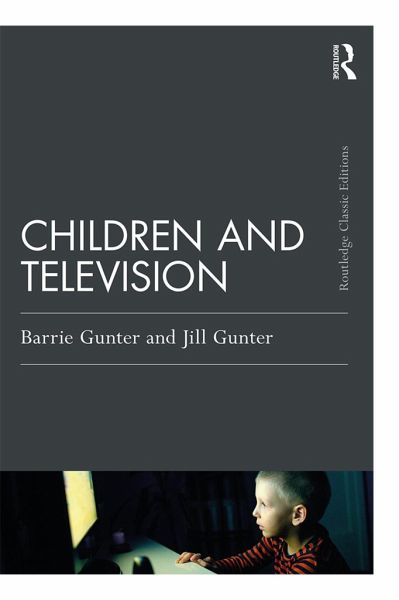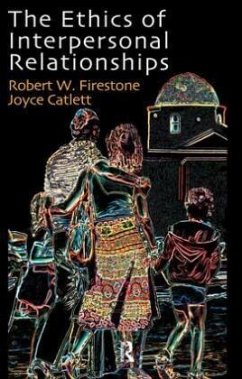
Children and Television
Versandkostenfrei!
Versandfertig in 6-10 Tagen
46,99 €
inkl. MwSt.
Weitere Ausgaben:

PAYBACK Punkte
23 °P sammeln!
Does violence on TV lead to violent behaviour? How does screen time impact child development? What is the effect of advertising on a child's behaviour? Twenty years after the publication of the first edition of Children and Television, these issues remain as pertinent as ever. In the new Classic Edition of this core textbook, Gunter and Gunter present research evidence into the effects of television on children and their responses to it.This comprehensive work examines a wide range of issues, including children's knowledge of television and how it impacts social roles, aggressive behaviour, ad...
Does violence on TV lead to violent behaviour? How does screen time impact child development? What is the effect of advertising on a child's behaviour? Twenty years after the publication of the first edition of Children and Television, these issues remain as pertinent as ever. In the new Classic Edition of this core textbook, Gunter and Gunter present research evidence into the effects of television on children and their responses to it.
This comprehensive work examines a wide range of issues, including children's knowledge of television and how it impacts social roles, aggressive behaviour, advertising, health orientation and both good and bad behaviour, and concludes that children are sophisticated viewers and control television far more than it controls them. The Classic Edition includes a new preface to the current context of the book, exploring the emergence of new TV channels, enhanced home recording capacity, archiving and streaming services replacing traditional forms of viewing with non-linear viewing and their impact on children.
This book is essential reading for postgraduate and undergraduate students taking courses on child development and family studies.
This comprehensive work examines a wide range of issues, including children's knowledge of television and how it impacts social roles, aggressive behaviour, advertising, health orientation and both good and bad behaviour, and concludes that children are sophisticated viewers and control television far more than it controls them. The Classic Edition includes a new preface to the current context of the book, exploring the emergence of new TV channels, enhanced home recording capacity, archiving and streaming services replacing traditional forms of viewing with non-linear viewing and their impact on children.
This book is essential reading for postgraduate and undergraduate students taking courses on child development and family studies.













